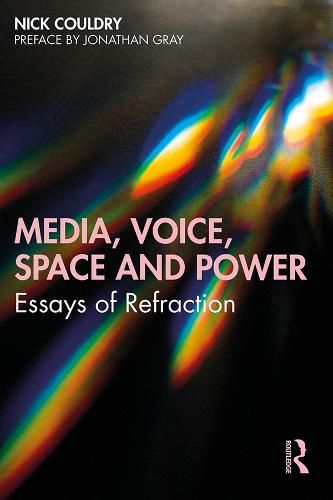Readings Newsletter
Become a Readings Member to make your shopping experience even easier.
Sign in or sign up for free!
You’re not far away from qualifying for FREE standard shipping within Australia
You’ve qualified for FREE standard shipping within Australia
The cart is loading…






Nick Couldry is one of the world’s leading analysts of media power and voice, and has been publishing widely for 25 years. This volume, published 20 years after The Place of Media Power, brings together a rich collection of essays from his earliest to his latest writings, some of them hard to access, plus two previously unpublished chapters.
The book’s 15 chapters cover a variety of themes from voice to space, from Big Data to democracy, and from art to reality television. Taken together, they give a unique insight into the range of Couldry’s interests and passions. Throughout, Couldry’s commitment to connecting media research to wider debates in philosophy and social theory is clear. A substantial Afterword reflects on the common themes that run throughout his work and this volume, and the particular challenges of grasping media’s contribution to social order in an age of datafication. A preface by leading US media scholar Jonathan Gray sets these essays in context.
The result is an exciting and clearly-written text that will interest students and researchers of media, culture and social theory across the world.
$9.00 standard shipping within Australia
FREE standard shipping within Australia for orders over $100.00
Express & International shipping calculated at checkout
Nick Couldry is one of the world’s leading analysts of media power and voice, and has been publishing widely for 25 years. This volume, published 20 years after The Place of Media Power, brings together a rich collection of essays from his earliest to his latest writings, some of them hard to access, plus two previously unpublished chapters.
The book’s 15 chapters cover a variety of themes from voice to space, from Big Data to democracy, and from art to reality television. Taken together, they give a unique insight into the range of Couldry’s interests and passions. Throughout, Couldry’s commitment to connecting media research to wider debates in philosophy and social theory is clear. A substantial Afterword reflects on the common themes that run throughout his work and this volume, and the particular challenges of grasping media’s contribution to social order in an age of datafication. A preface by leading US media scholar Jonathan Gray sets these essays in context.
The result is an exciting and clearly-written text that will interest students and researchers of media, culture and social theory across the world.